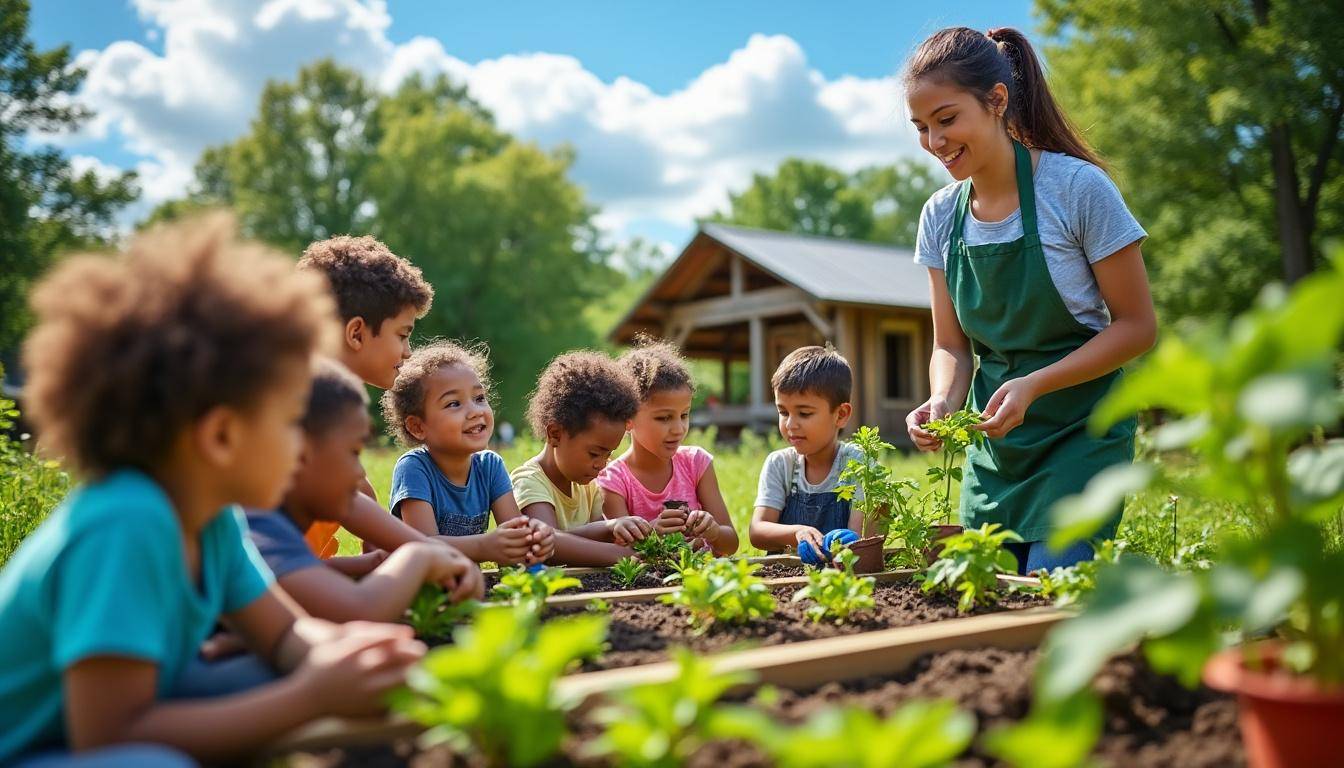Across northwest Missouri and southwest Iowa, a vibrant scene unfolds each summer as children aged 5 to 10 immerse themselves in the wonders of agricultural education. At the Agricultural Learning Center of Northwest Missouri State University, the second annual Ag Camp invites young learners to explore farming from hands-on experiences, all while future educators sharpen their skills guiding them. This dynamic interplay presents a unique model of community engagement and personal growth, demonstrating how agricultural literacy can be cultivated through immersive, playful, and educational activities.
Engaging Agricultural Education Camps: How Hands-On Learning Builds Knowledge and Interest
The success of this Ag Camp illustrates the power of experiential teaching—an approach central to educational initiatives such as Camp Green Thumb, Roots & Shoots Camp, and the Farm Learning Adventure. Children participate in interactive tasks that bring their lessons to life, such as creating soybean germination necklaces, crafting bioplastics, and making butter from scratch. These experiences foster a direct connection to farming concepts beyond textbook definitions.
- Practical activities including crop germination and animal care discussions
- Game-based learning like “pin the tail on the pig” to reinforce agricultural vocabulary and concepts
- Demonstrations of feeding rations through fun snack mix experiments
- Hands-on encounters with farm animals such as pigs, goats, calves, and sheep
- Exploration of farming machinery and career possibilities
About half of the camp’s attendees come from non-farming backgrounds, highlighting the program’s role in broadening agricultural literacy and sparking curiosity even among children disconnected from rural life.
How Future Educators Develop Teaching Skills Through Agricultural Internships
While children gain foundational knowledge at the camp, agricultural education majors at Northwest Missouri State University, including interns like Emma Brushwood and Katijo Schaefer, refine their classroom management and teaching tactics. They employ curricula sourced from Agriculture Education on the Move, adapting their lesson delivery to different age groups and interactive challenges. This practical engagement helps them:
- Customize lessons based on children’s diverse learning styles
- Respond to unexpected classroom needs with creative solutions
- Build confidence through hands-on facilitation of activities
- Deepen understanding of agriculture by teaching peers and youngsters
- Form meaningful community connections by collaborating with local organizations
Participation in camps like Nature’s Classroom and AgriKids Camp exemplifies the synergy between educational theory and practical impact.
Why Agricultural Camps Are Essential for Building Lifelong Skills and Awareness in Children
Agricultural camps not only impart knowledge about food production and farming techniques but also nurture critical life skills such as responsibility, problem-solving, and environmental stewardship. Programs akin to Future Farmers Camp and Eco Explorers emphasize these developmental benefits. Children who participate in these camps often show increased interest in exploring related career paths, enriching local communities and economies.
- Enhances observational and scientific inquiry abilities
- Encourages teamwork and social engagement through group tasks
- Instills an appreciation for natural resources and sustainable practices
- Introduces early career insights connected to agriculture and beyond
- Builds self-confidence through achievement in tangible projects
Such comprehensive educational experiences prepare children not only to understand where their food comes from but to see themselves as pioneers in a vital, evolving industry. More information about potential career paths emerging from agriculture can be explored here.
Community Engagement and Support Amplify the Reach and Impact of Ag Camps
The success of these agricultural programs relies heavily on community involvement. The Northwest Ag Camp benefits from generous sponsorships by local businesses and organizations that make it possible for around 150 children to attend free of charge, providing them with materials, T-shirts, and treats. This model mirrors community-supported initiatives seen in camps such as Little Sprouts Camp and Young Agrarians, where collaboration ensures sustainability and accessibility.
- Local business donations covering program costs
- Material sponsorships enhancing hands-on learning materials
- Volunteer staff supporting camp operations and individual attention
- Community events raising awareness and fostering participation
- Parental involvement nurturing family discussions about agriculture
Through these partnerships, camps create a nurturing environment that extends learning beyond the classroom and integrates agriculture into the community’s cultural fabric.
Expanding Agricultural Literacy Through Varied Educational Formats and Programs
Moving beyond traditional camp models, agriculture education increasingly incorporates diverse learning experiences tailored to different interests and stages of development. Integrating outdoor adventures, farm visits, and interactive media enriches programs such as Harvest Academy and expands the reach of agricultural literacy to urban and rural audiences alike.
- Curriculum-driven classroom sessions with engaging experiments
- Hands-on farm exposure encouraging real-world understanding
- Interactive digital and video content complementing physical activities
- Group projects fostering collaboration and leadership development
- Career exploration workshops connecting education to future opportunities
Such comprehensive approaches help sustain children’s interest over time and support a vision where agricultural knowledge becomes part of the educational mainstream. Discover diverse career paths connected to agriculture and education through this resource.


